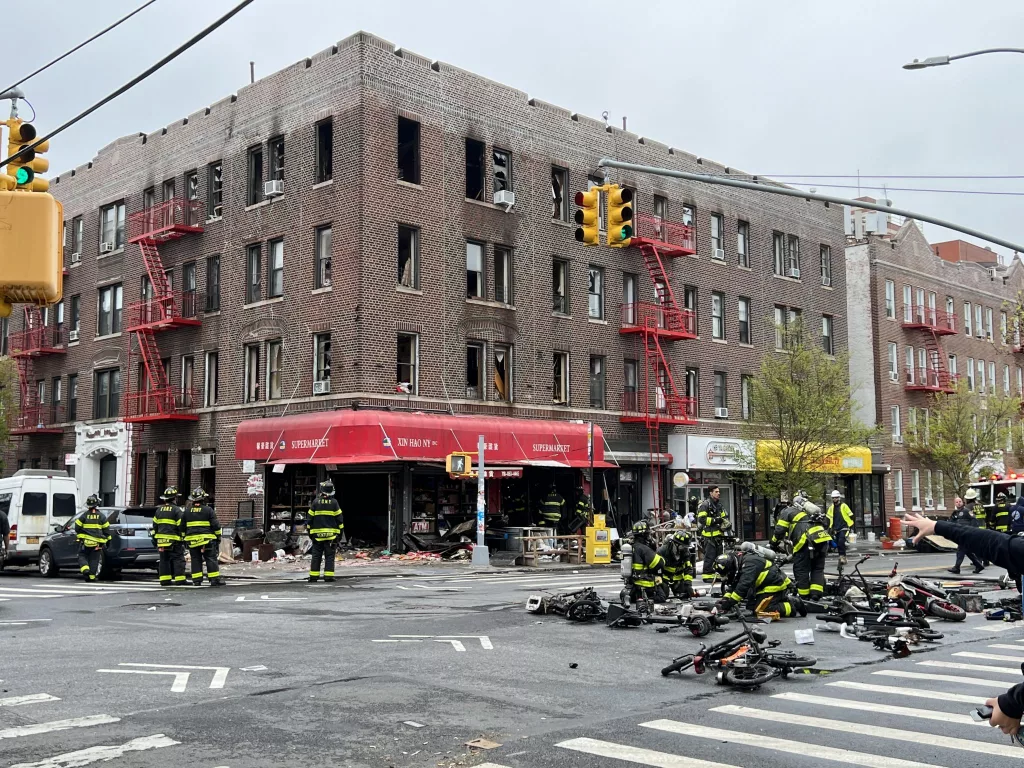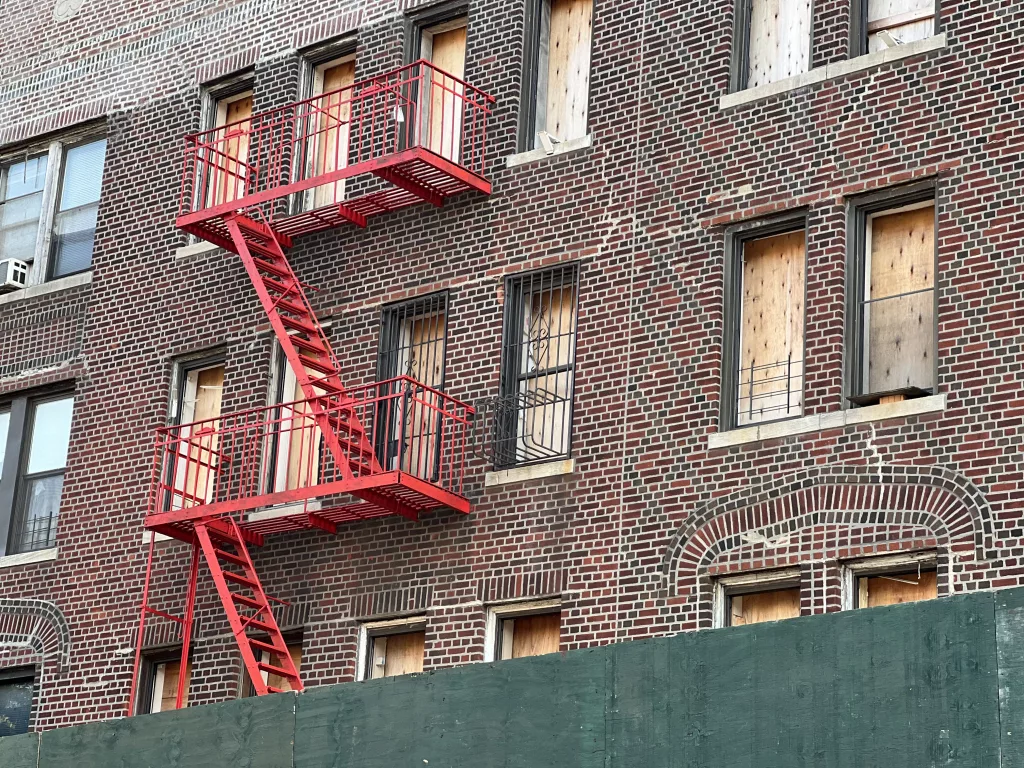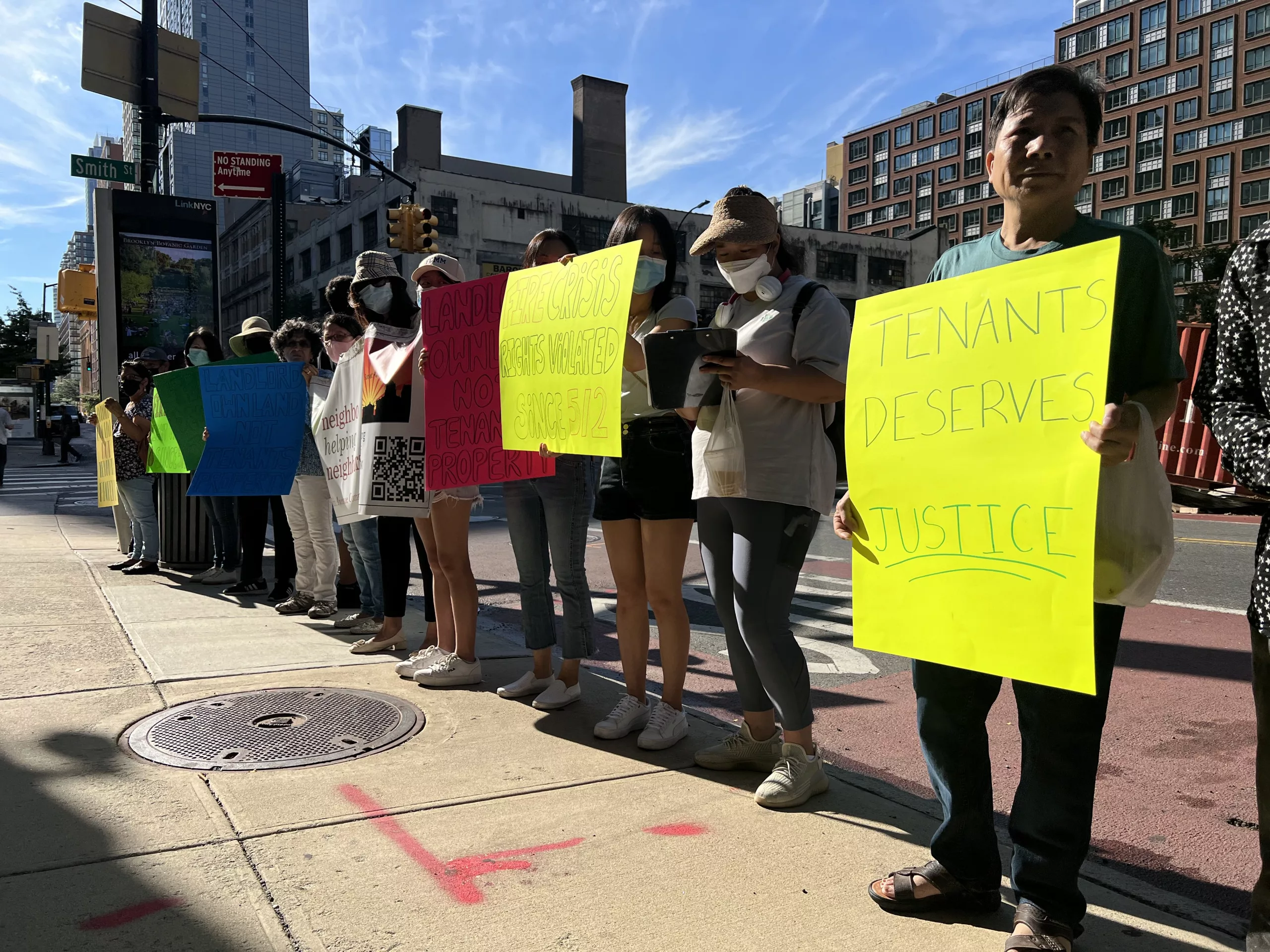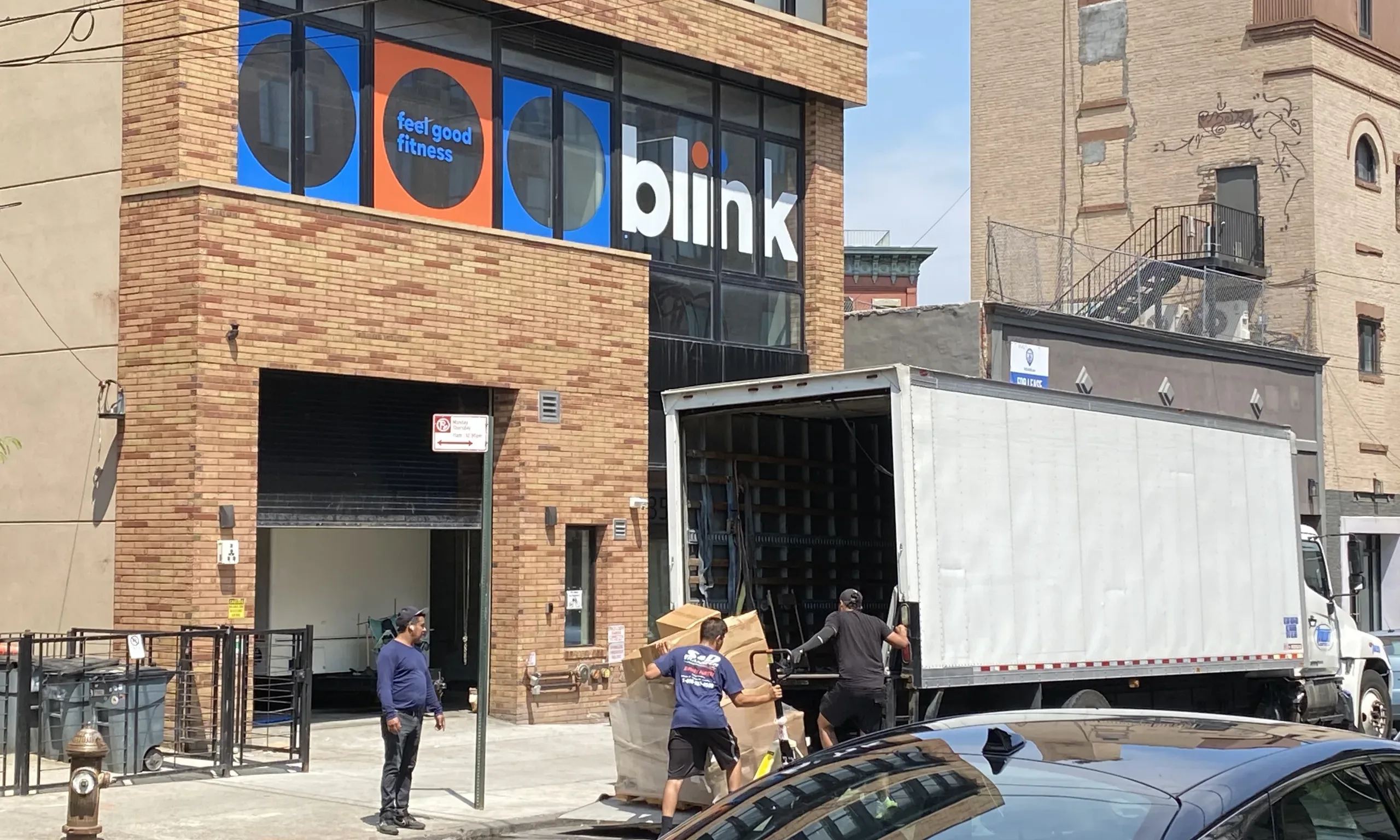On the morning of May 2, 2022, Tony Zheng woke to thick smoke in his apartment at 702 54th Street in Sunset Park. He promptly got his wife and daughter out of bed and alerted neighbors to escape from the building. Several hours later, the fire was quelled, affording him a brief window to reenter his apartment and retrieve a few belongings. Little did he know, this would mark the last time he set foot in his home of 13 years, since the fire happened.
Also Read: 39 Brooklyn Families Displaced by Apartment Fire Taking Legal Action
In the past year, Zheng and his family relocated three times, staying in hotels and shelters in Brooklyn and Manhattan. They are unable to find permanent housing. “The current hotel we stay in lacks convenience. I cannot frequently gather with friends and relatives as before, and it affects my commute to work a lot. I feel like I’m in a prison now,” said Zheng.
Echoing Zheng’s plight, 38 families within the 40-unit rent-stabilized building faced displacement due to a three-alarm fire, which erupted on the first floor, originating from lithium-ion batteries stored in an e-bike and scooter repair shop. The families say that the landlords—Baozhen Lin, Moshe Kraus, and their management companies, 702 Plaza LLC and M&D Heritage Group LLC — were unresponsive and sluggish in their actions, forcing them to seek shelter in hotels, shelters, and the homes of relatives across different boroughs of New York City.
The New York City Fire Department has been battling similar fires across New York as more people are seeking out delivery work and cheap e-bike batteries have proliferated as a result. On June 20, a fire broke out inside an e-bike shop located on the ground floor of an apartment building in Chinatown, killing four people and severely injuring two others. According to Max Deutsch, Legislative Director in Councilman Chris Marte’s Office, of the 30 apartments affected by the fire, around 20 are in NYC Department of Housing Preservation and Development (HPD) shelters in Manhattan.
“It’s been well over a year that they [landlords] are still trying to drag things out, making sure that this is painful and difficult for folks who have already lost a lot as they can possibly make it,” said Jared Watson, Tenant Organizer at Fifth Avenue Committee (FAC) & Neighbors Helping Neighbors, a FAC-affiliated, housing counseling and tenant advocacy organization. “It’s really a tragedy that folks who rely on the relatively affordable housing that is rent-stabilized apartments are at risk of not just losing their homes but being displaced from the neighborhood,” added Watson.
The majority of tenants, according to the complaint, have been barred from collecting their personal belongings due to partial vacant orders placed by HPD and the NYC Department of Buildings (DOB) in the interest of public safety. DOB records also show that the Brooklyn building has a history of violations, including three active violations directly related to the fire.

Currently, tenants from 21 apartments are entangled in a prolonged legal battle with the landlords, demanding expedited building repairs to facilitate their return. On August 17th, during a court hearing regarding the case against their landlords, Laura Alegre, a 72-year-old immigrant from Peru who had resided in the building since 1978, joined five other tenants. Testimony at the hearing by Taylor Anvid, an attorney at the New York City Law Department, indicated that as of August 17th, the landlords had yet to submit a concrete repair application to the Department of Buildings.
The tenants expressed a sense of “secondary victimization” from the landlords’ response. Despite multiple attempts to contact the landlords via email or phone, they have not received a direct response. “It’s very frustrating. The landlord looks like he is enjoying doing this [lawsuit],” said Alegre. “He doesn’t want to fix this, he is waiting for us to give up.” She said the fire is life-changing and disruptive; she has to occasionally drop her babysitting work to attend the court hearings. She is currently residing with seven other family members in her niece’s Brooklyn home. “My niece is very nice, but it doesn’t mean we have to bother her and stay in the way,” said Alegre.
Chai Yu Chen, another tenant staying in a Brooklyn shelter with three family members, disclosed that the landlords had offered $25,000 in compensation to tenants willing to vacate the building post-fire. Chen questioned, “What can we do with $25,000? We simply want the building to be repaired so we can return.”
“The Landlords want to bring down the whole building and build a new one,” said Coco Weng, who had lived in the building for more than 10 years. Weng noted that after tenants rejected the $25,000 compensation plan, the landlords brought up another plan to demolish the building and build a new one. According to Weng, tenants were informed that they could return to the new building by paying an adjusted rent with the possibility for future increases. However, crucial details, such as the timeline for construction and the magnitude of rent hikes remain undisclosed.
TestPost3

During the hearing, JD Lin, an expert witness who works in construction provided by the landlords, asserted that the cost of repairing the building would surpass 50% of its value, necessitating substantial alterations following new building codes. Lin said these codes mandate ADA accessibility compliance for every unit and elevator installation in the building. Henry Huang, a construction contractor and expert witness at the hearing, estimated the repair costs at around eight million dollars.
“The law doesn’t say that at all,” Michael Leonard, Supervising Attorney at TakeRoot Justice representing the tenants said with regards to Lin’s claim. Michael Grinthal, Director of Housing Rights at TakeRoot Justice, also pointed out that the landlords had not applied for any waiver that might exempt them from certain Building Code Chapter 11 Accessibility requirements under specific circumstances, including when such requirements would impose an undue economic burden.
“The landlord game in this scenario is often to drag things out as long as possible and make things as difficult as possible so that people give up and lose,” said Watson. “And if they can get people to give up on this, then they can do whatever they want.”
Matthew S. Brett, the attorney representing the landlords, declined to comment on this case.












